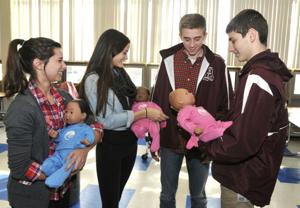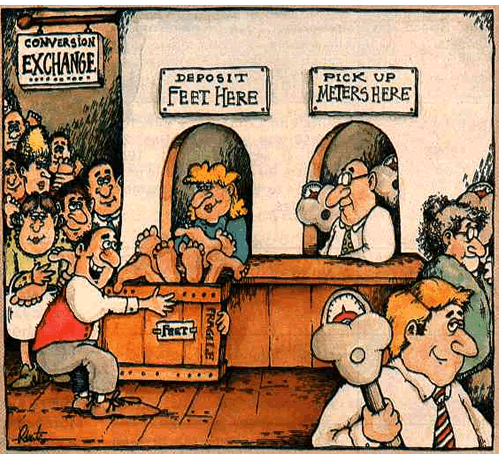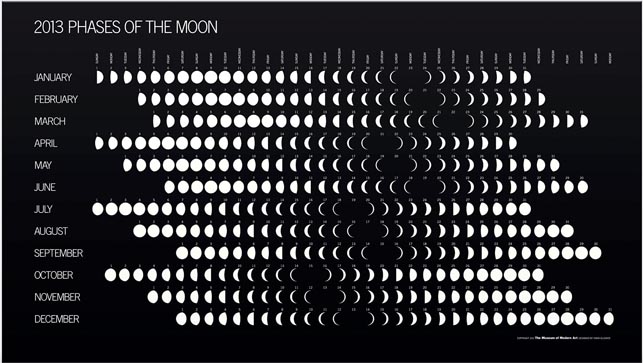What is 추석(Chuseok)?
What are they celebrating?
Both a good harvest as well as paying respect to their ancestors.
How did it originate?
There are several theories. The most popular one claims that it derives from the Gabae, which was a month-long weaving contest between two teams that was in practice during the Silla dynasty. The losing team had to prepare a harvest feast for the winning team.
How do they celebrate?
On the 15th day of the 8th month of the lunar calendar, they hold a major harvest festival that they celebrate alongside fellow family members. It's typically a 3-day holiday.
Day 1 is Preparation Day. Lots of cooking and food prepping. I can't tell you have many garlic heads I peeled nor how many days it took for me to stop reeking of the stuff. It was hard work. There's actually a term in Korean called 명절 증후군, which means "Holiday Syndrome." This picture explains it all.
Stuffed floured perilla leaves (깻잎) to be fried
Then later you visit the graves of deceased family members. You pick away the weeds, offer food and drink (in our case, it was dried squid and beer for the older ancestors and fresh fruit and beer for those recently departed), and bow. After lunch, my family went to my host mom's parents' house. So it's a lot like Thanksgiving in that there's a lot of moving around and lots of work to be done.
Day 1 is Preparation Day. Lots of cooking and food prepping. I can't tell you have many garlic heads I peeled nor how many days it took for me to stop reeking of the stuff. It was hard work. There's actually a term in Korean called 명절 증후군, which means "Holiday Syndrome." This picture explains it all.
 |
 |
 |
| Veggie-beef patty = 동그랑땡 Day 2 is where it's at: it's officially Chuseok day! |
Upon arrival, everyone greets one another and promptly begins to scurries around, either arranging the food offerings or setting up the folding wall that gets placed behind the table of food. There is a ceremony in which a series of bows are made as someone sings a chant to the ancestors. Then they dismantle the whole food offering arrangement and set out the food in a more conventional manner. And you eat!
Then later you visit the graves of deceased family members. You pick away the weeds, offer food and drink (in our case, it was dried squid and beer for the older ancestors and fresh fruit and beer for those recently departed), and bow. After lunch, my family went to my host mom's parents' house. So it's a lot like Thanksgiving in that there's a lot of moving around and lots of work to be done.
What do they wear?
Some people choose to wear their traditional hanbok while others just dress in semi-formal holiday attire. Most parents have their children wear hanbok for the beginning of the day during the ceremony and then later they can take it off (it's still so hot and humid here and hanbok is not so breathable).
They look so happy right?
They look so happy right?
What do they eat?
Day 3 is just a post-Chuseok relax-and-hang-out-with-family-and-eat-leftovers day. We slept over at my host mother's parents' house on Chuseok, so we spent the better part of Day 3 there.
What was Chuseok like for me?
It was the hardest set of days I've had here to date. It was pretty hard being thrown into a situation where I had no idea how the system worked and even less of an idea as to what I was expected to do or say. I think that was especially because it lasted almost 3 whole days. It was also a bit strange to be the only non-family member at a family holiday. Everyone knew everyone and I was really just a fly on the wall, watching everything and only understanding a little.
Chuseok flub-up
Chuseok flub-up

Disclaimer: My host mom doesn't scream at me.
This Pheobe gif was just to perfect to pass up.
When I do something that's not socially acceptable within Korean culture, my host mom thankfully doesn't hesitate to tell me. So anyway, I knew it's good Korean etiquette to wear socks in someone else's house. It's a sign of respect. But I was hot and everyone else was barefoot, so I decided to give in and follow their lead. But little did I know it wasn't only about whether or not you wear them; it's very rude to leave your socks unattended on the floor. My host mom tried to mention this to me while we were at my host family's house, but I didn't understand her. So, she told me when we got home. I think this is a thing in the U.S. too, but I get the feeling that at a family member's house, it's not so bad. Is that right?
Chopsticks
Recently when I've tried to help my parents set the table for dinner, my host mom has ended up shaking her head, rearranging the chopsticks from the way I laid them down. In Korea, every meal is eaten with a set of metal chopsticks and a spoon. I didn't expect there was any rhyme or reason to the set up so I would just grab any from the utensil drawer and finally she told me that it's really important that you do this right. And that's when I told her I have no idea what 'right' means. Apparently in some Korean houses, each person gets a designated type of chopstick and you do not mix them up. In my host family's house, for example, the mom eats with chopsticks that have the red Chinese symbol for luck, the father uses the same but in blue, the guest (me) eats with the ones that are decorated in gold at the bottom, and the kids get shorter, plain ones. Actually, because Gyu-hwan is so young, he eats with baby chopsticks. Instead of two separate sticks, they're attached at the bottom like tongs. But of course, some households don't have person-designated utensils.
And in the midst of this dialogue, my host mother also told me it's important to always keep your utensils to the right of you bowl. It's impolite to put them to the left or to, even worse, leave them in your bowl while you eat with another utensil (as this is a ritual for the dead).
Eat with your right hand
And in the midst of this dialogue, my host mother also told me it's important to always keep your utensils to the right of you bowl. It's impolite to put them to the left or to, even worse, leave them in your bowl while you eat with another utensil (as this is a ritual for the dead).
Eat with your right hand
Attention all left-handed peoples! At orientation, we were told that it's a bit rude to eat with your left hand. It's proper etiquette. But I had totally forgotten this until I heard my host mom scolding Gyu-hwan for not eating with his right hand. I know that Indian culture encourages such practice because the left hand is used in lieu of toilet paper when going to the bathroom. But, I'm not sure if there is a similar reason why Korean culture is this way.
 |
| The little commercial area 5 minutes from my apartment. |
Che-eun
 |
| Dressing up in her 'big sister's' clothes! |
 |
| Walking to school with Che-eun and her best friend |
 |
| Being a good older sister. Letting Gyu-hwan sit on the exercise ball with her as she studies. Kodak moment. |
 |
 |
| I love it when she does my hair! |
 |
| She's taken a liking to Bryan. She knows how to say Hola, Te amo, and Gordo. She always asks him to make funny faces and she messages him gibberish and/or a few Te amoooooos while we're Skyping. |
 |
 |
| Can't get enough of the silly filters. |
 |
| Try to see if you can find Gyu-hwan in this picture. |
 |
| Gettin' silly during Chuseok preparations |
 |
| I took her to the coffee shop so we could both study and get out of the house. We had a smoothie and some yummy bread. And she almost finished all her homework! ^.^ |
The other day she just stopped and look at me with the widest-eye wonder and said, "Your eyes...it's amazing. Amazing! Incredible!" She liked that they're blue and than she can see her reflection so clear in them. But that reaction was nothing in comparison to the first time she saw me take out my contacts. Her curiosity and joy over something I see as so ordinary was really refreshing.
Parenting Practicum

In many high schools - or maybe just in the movies at least - high school students are introduced to parenthood by having to take care of a baby doll or egg. At Gateway, we never did that. I often wondered if I would then be somehow under-prepared when I have kids of my own. But, there's nothing like the real thing. This year I think I'll get all the practice I need in raising children. I've learned that kids never want to eat when it's mealtime, they always want a snack when it's not, and they will do anything to avoid getting up in the morning. Additionally, raising boys can be quite different from raising girls. I don't know if this is because they are socially trained to act different from a very young age or if there is some real biological difference. But the difference is real. I've learned that when you give into a tantrum, you're digging your own hole. While they're still learning about the world and can sometimes be trying, they can often surprise you with their intelligence and congeniality. When you have kids, hardly anything is really just 'yours' anymore. Your space, your time, your schedule, your room, your cellphone, your belongings, your bed...etc. I'm so used to thinking about what I need to do, where and when I want to do it...etc. but with kids around, your sense of selfishness is certainly compromised. I think the hardest part is getting used to the idea that living with a homestay family, you often have to forfeit your personal plans, desires, and for the sake of engaging in social activities. That's sometimes hard for me because I'm used to if I'm tired or need to study, I can go back home and rest or study. But here, I'm at the whim of the family's decision. It's a letting go of power of what I do and when. And that's been hard. It's also been hard to give up all my privacy. The only time I can get garaunteed along time is when I go to the bathroom. And even then it's not uncommon for Gyu-hwan to persistently knock on the door until i come out. But I've learned that when I really need to just have some alone time, I can always go to the gym. (I think I'll be pretty fit by the end of this year. ^.^) Just when I settle in to study, it's then that Gyuhwan sticks his hand up my armpit and smells it and Che-eun asks me to pick her up and swing her around. Then Gyu-hwan starts to cry because he can't figure out how to open his Transformers car. And Che-eun isn't doing her homework now like she's supposed to. Having younger siblings is a totally different ballgame compared to the growing up with an older brother.
But despite the fact that it's sometimes a bit of a sensory overload, they usually make my day brighter. When I come home stressed out, they can change my attitude to one that is more whimsical in a matter of minutes. There's some magical quality that kids have to bring you back to reality and put things in perspective. I remember asking my dad once what it was like to parent. And he told me this: When you have kids, you have two jobs. You have your day job and then you have your parenting job. It's the latter that gives your life the most meaning. I've been thinking about that adage a lot lately.
The "Fun Thing"
the 재밌는것, which means "the fun thing." It didn't take me long to figure out that's what he calls smart phones.
Getting green
 |
| Host father and Gyu-hwan. It was Gyu-hwan's first time at this mountain and he got pooped towards the end. |
 |
| Saw this cool bird. It doesn't look it here but it's blue-ish and kind of big. |
There's this cultural tradition in Korea that when you offer to help someone, they should refuse the first and maybe second and third time before allowing you to help them. Usually in the U.S., if someone offers to help, you might refuse at first, saying it's fine. But if they ask a second time, you'll say either 1) Ok, thanks for helping. or 2) No, it's really okay. But thanks, don't worry about it. After that exchange you know whether you will or will not help. But in Korean culture, sometimes they will simply keep saying no, but it is expected that you'll just jump in anyway. This is how my host father explained it to me when I asked him about it. I feel so weird doing this! So, I always do this awkward thing of hanging around the kitchen asking my host parents if I can help with the dishes, and then I ultimately trail away, not sure if I should've dove into the sink or not.
The metric system


Things would be much easier if I understood the metric system. But living somewhere for a year, you can't just try and convert back to our system every time you want to know the temperature, your weight, how many Km you've run...etc. So, I've started just memorizing a few basic things like my height and weight. At the gym, I get used to what it feels like to run 5km. I've learned to understand that ~5 Celsius is cold, ~10 Celsius is chilly, ~(15-20) is neutral, ~25 Celsius is warm, ~30 Celsius is hot, and 35+ is too hot to move away from the fan. So then, little by little, I'll eventually get a feel for the metric system.
But really U.S., can we get on the metric boat already?
But really U.S., can we get on the metric boat already?
Girl Talk in the Teacher's Lounge
In the mornings and after lunch, the third grade-teachers meet in my office to have coffee, chat, and gossip. Every once in a while, one of us will bring in some tasty snacks. It's a nice co-worker safe-space.
Answering the phone in Korean

I had to get over my fear of speaking in a foreign language over the phone pretty quickly. Often times I'm alone in the office when my co-teacher is out taking care of work elsewhere in the building. I've done surprisingly well so far. I haven't botched a message delivery yet, but there's still time. Despite the initial apprehension I had for speaking on the phone in Korean, it's been good for me because now I'm much more comfortable with the idea.
What seems like a dichotomy...


The students certainly bow to teachers, they let us skip the line to eat before them during lunch, they get so excited to see us outside of class, but that didn't stop one of my 5th grade students from muttering, "Mother******" in Korean when he lost during a speaking game. And it didn't stop another kid from writing "What the hell." in English on his worksheet. It's so interesting to observe the difference in behavior between the different grades. The jump from 4th to 5th grade is a big one for the students. The 'let's be rebellious' phase comes into play and it takes a certain kind of a pedagogy and classroom management to hone in on their skills and design a class that is conducive to their stage in life. However, in teaching English in Korea, a teacher faces one enormous limitation...
Boring Textbook Syndrome! This is a serious condition. Please consult a doctor before using a Boring Textbook. Although using a Boring Textbook is illegal in many states of the U.S.A, they are still obligatory for English learning in Korean public schools. But be aware because side-affects include but are not limited to:
This is a serious condition. Please consult a doctor before using a Boring Textbook. Although using a Boring Textbook is illegal in many states of the U.S.A, they are still obligatory for English learning in Korean public schools. But be aware because side-affects include but are not limited to:
1) Irregular - even dangerous - mood swings
2) Increased fatigue
3) Restless Leg syndrome
4) Restless Mouth Syndrome
5) Restless Everything Syndrome
6) Hearing deficiencies that result in not being able to listen to the teacher
7) Increased risk of having Ants in your Pants
8) Increased interest in shiny things
9) Decreased motivation to study
But really, it is unfortunate that the system is the way it is. It really does a disservice to the students. I find the textbook we use to be a good one, but following it religiously is boring for even me. The content, as well as the lessons, within each unit is so repetitive and easy that most students just get bored with it and end up tuning it out. I hardly blame them. If a teacher made me spend a whole two weeks on how to say "Would you like to come" and "Sure. Thanks." I would start to zone out too. When I have the opportunity to switch things up and put together an activity of my own, it's SO much more enjoyable for me and the students. Just last week I did a game that fused a speaking task (competitively and speedily sight-reading invitational/acceptance/refusal sentences) with Rock Paper Scissors. It got the kids up and moving, they were motivated to produce English speech, they had fun, I had fun, they associated English-learning with being a positive experience, and they were much so much better behaved because if they weren't I would stop the game. I really took this liberty for granted while I student taught in the U.S.A. Planning outside of the textbook requires more effort and preparation from the teacher, but even the simplest activity that 'spices it up' can improve the classroom by 100%.
Parent-Teacher School Assembly
The assembly is just to brief parents in on what's going on at school this year and reign in the second semester. But after all that, they showed a really shocking video. It's a twisted spin-off of the Three Little Bears and it's message was very clear: When parents set bad examples, kids become bad people.
It's a 1-minute cartoon based on a loveable children's story but it shows a drunk father bear beating his wife, a teenage bear sexually abusing a girl in an alley and violent bullying. Korea has long had serious problems with sexual harassment, rape, gender complexes, bullying, and school violence. With this video, the school is definitely waving their finger in a very specific direction.
After you watch it, think about how this would go over during a Parent-Teacher School Assembly in the U.S. Is is ascribing too much of the blame on parents or does it convey a message that's a taboo truth?
Click here to watch it
Say what now?
 |
| Some of my 5th graders. |
The girl next to me looks so much like Eunha, my roommate from last summer (the girl on the left side of the right picture). This picture doesn't do it justice, but they look freakishly similar!
  |
The kids walk hand-in-hand here. So cute! |
The assembly is just to brief parents in on what's going on at school this year and reign in the second semester. But after all that, they showed a really shocking video. It's a twisted spin-off of the Three Little Bears and it's message was very clear: When parents set bad examples, kids become bad people.
It's a 1-minute cartoon based on a loveable children's story but it shows a drunk father bear beating his wife, a teenage bear sexually abusing a girl in an alley and violent bullying. Korea has long had serious problems with sexual harassment, rape, gender complexes, bullying, and school violence. With this video, the school is definitely waving their finger in a very specific direction.
After you watch it, think about how this would go over during a Parent-Teacher School Assembly in the U.S. Is is ascribing too much of the blame on parents or does it convey a message that's a taboo truth?
Click here to watch it
I translated the lyrics to English:
Papa bear is rowdy and belligerent
Mama bear can't endure it anymore
Baby bear is really scared
We hate domestic violence
Baby bear grows up
Papa bear goes along with his bad behaviour
At school he acts normal (just bullying and punching people)
In dark alleys he changes (into bad bear and sexually harasses women)
When he goes home he beats his family (just like his father) Say what now?

During her arrival dinner, the new principal asked me to sit by her. So, to make conversation I asked her what her major area in education was. Or, that's what I thought I asked. She gave me a Say-What-Now? look, whispered to the vice principal next to her, turned back to me and told me that she would tell me at a later time, not today. I think I asked her what her religion (Jong-gyo) was, not her major (Jeon-gong).
Don't write anyone's name in red.
As red is associated with death, doing so suggests that that person will die. I wrote my name in red on the whiteboard. Luckily Ms. Kim filled me in on this little fact before the kiddies arrived.
Don't write anyone's name in red.
As red is associated with death, doing so suggests that that person will die. I wrote my name in red on the whiteboard. Luckily Ms. Kim filled me in on this little fact before the kiddies arrived.
It's the little things
One of the boys in my class was taunting the girl who sits next to him. After settling him down, I wrote her a little note asking if she is okay and that I think she's a great student for not giving into his taunting. Well, she took the time to write back a little note back to me saying "Thank you teacher. <3"
My face when I don't know what you're saying to me.

My face when I don't know what you're saying to me.

Do this make it look like I'm following?

Lunar calendar
Like the majority of present-day countries, the U.S uses the Gregorian calendar. Although Korea has transferred to using it for daily scheduling as well, they still follow the lunar calendar for big lunar holidays (like Chuseok) and to celebrate birthdays (generally older, more traditional people). 
The lunar calendar accounts for the difference in the way Korea expresses age. Although I'm 22, my Korean age is 24. While I know that Korean age begins in the womb, that would only make me 9 months older. But, it turns out that on the day you are born, you are 1 year old. But still, how could I be 2 years older? In the Korean system, one does not change in age on his/her birthday. Rather, everyone in Korea adds one year to their age on the lunar New Year's Day. So, if your child is born on Christmas Day, by January 1st (only a few days after he was born) she's already 2 years old.
This doesn't mean that Koreans don't celebrate their birthdays. On the contrary, you can celebrate several birthdays: your lunar birthday, your Gregorian birthday, or the day you got your citizen/birth ID certificate (which is different than your birthday). So, you can celebrate 3 time if you really want to.
Korean Karaoke Bar!
 |
| Some other English teachers in Cheonan and I went out for a night of singing and fun. |


It's all about the wigs and the big bows.
Transvestite restaurant?
 |
| The place to be on a Friday night. University students and young professionals abound. |
Andrew, there's a Night Before Christmas bar!
Korean sounds that may surprise you
So is that a yes or a no?


Read the following dialogue and answer the question.
Emily: Oh, you didn't bring your jacket. You're not cold?
Che-eun: No.
So, does Che-eun feel cold? __ (Yes) __ (No)
The answer is yes. In Korean, affirmative/negative answers work differently than in English. If I ask, "You're not cold?" and Che-eun WASN'T cold, she would answer "Yes." thereby confirming that my statement about her being not being cold was right. In other words, "Yes, you are right. I am not cold." In this dialogue, she answers "No" to convey, "No, you are wrong. I AM in fact cold." Although it's awkward and clumsy to get used to, I think it makes more sense to respond this way. You end up answering the question directly, basically just confirming or disagreeing with a statement/question that's been made. Anyway, I always end up asking questions twice to make sure I know what their answer is. But the best way to avoid this is to just ask everything in the affirmative. So, instead of "You're not cold?" use "Are you cold?"
As always, thanks for reading. Cheerio!
As always, thanks for reading. Cheerio!


































No comments:
Post a Comment